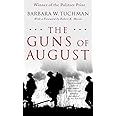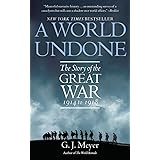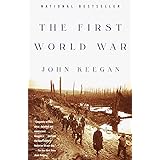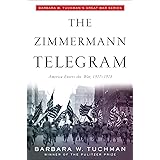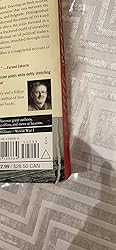
Enjoy fast, free delivery, exclusive deals, and award-winning movies & TV shows with Prime
Try Prime and start saving today with fast, free delivery
Amazon Prime includes:
Fast, FREE Delivery is available to Prime members. To join, select "Try Amazon Prime and start saving today with Fast, FREE Delivery" below the Add to Cart button.
Amazon Prime members enjoy:- Cardmembers earn 5% Back at Amazon.com with a Prime Credit Card.
- Unlimited Free Two-Day Delivery
- Streaming of thousands of movies and TV shows with limited ads on Prime Video.
- A Kindle book to borrow for free each month - with no due dates
- Listen to over 2 million songs and hundreds of playlists
- Unlimited photo storage with anywhere access
Important: Your credit card will NOT be charged when you start your free trial or if you cancel during the trial period. If you're happy with Amazon Prime, do nothing. At the end of the free trial, your membership will automatically upgrade to a monthly membership.
Buy new:
$12.99$12.99
Buy used:
$11.88





Download the free Kindle app and start reading Kindle books instantly on your smartphone, tablet, or computer - no Kindle device required.
Read instantly on your browser with Kindle for Web.
Using your mobile phone camera - scan the code below and download the Kindle app.

 Audible sample Sample
Audible sample Sample



Follow the author
OK
The Sleepwalkers: How Europe Went to War in 1914 Paperback – March 18, 2014
Purchase options and add-ons
“A monumental new volume. . . . Revelatory, even revolutionary. . . . Clark has done a masterful job explaining the inexplicable.” — Boston Globe
One of The New York Times Book Review’s 10 Best Books of the Year • Winner of the Los Angeles Times Book Prize (History)
Historian Christopher Clark’s riveting account of the explosive beginnings of World War I.
Drawing on new scholarship, Clark offers a fresh look at World War I, focusing not on the battles and atrocities of the war itself, but on the complex events and relationships that led a group of well-meaning leaders into brutal conflict.
Clark traces the paths to war in a minute-by-minute, action-packed narrative that cuts between the key decision centers in Vienna, Berlin, St. Petersburg, Paris, London, and Belgrade, and examines the decades of history that informed the events of 1914 and details the mutual misunderstandings and unintended signals that drove the crisis forward in a few short weeks.
Meticulously researched and masterfully written, The Sleepwalkers is a dramatic and authoritative chronicle of Europe’s descent into a war that tore the world apart.
-
Print length736 pages
-
LanguageEnglish
-
PublisherHarper Perennial
-
Publication dateMarch 18, 2014
-
Dimensions5.31 x 1.18 x 8 inches
-
ISBN-100061146668
-
ISBN-13978-0061146664
The Amazon Book Review
Book recommendations, author interviews, editors' picks, and more. Read it now.
Frequently bought together

Similar items that may ship from close to you
-
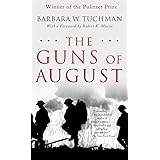 The Guns of August: The Pulitzer Prize-Winning Classic About the Outbreak of World War IBarbara W. TuchmanMass Market Paperback
The Guns of August: The Pulitzer Prize-Winning Classic About the Outbreak of World War IBarbara W. TuchmanMass Market Paperback -

-
 The targeting of the archduke thus exemplified one abiding strand in the logic of terrorist movements, namely that reformers and moderates are more to be feared than outright enemies and hardliners.Highlighted by 1,705 Kindle readers
The targeting of the archduke thus exemplified one abiding strand in the logic of terrorist movements, namely that reformers and moderates are more to be feared than outright enemies and hardliners.Highlighted by 1,705 Kindle readers -
 The First World War was the Third Balkan War before it became the First World War.Highlighted by 742 Kindle readers
The First World War was the Third Balkan War before it became the First World War.Highlighted by 742 Kindle readers -
 When the Russian government refused to rescind its mobilization order, Germany declared war on Russia on 1 August 1914.Highlighted by 633 Kindle readers
When the Russian government refused to rescind its mobilization order, Germany declared war on Russia on 1 August 1914.Highlighted by 633 Kindle readers
Editorial Reviews
Review
“An important book. . . . One of the most impressive and stimulating studies of the period ever published.” — Max Hastings, The Sunday Times
“Excellent. . . . The book is stylishly written as well as superb scholarship. No analysis of the origins of the First World War will henceforth be able to bypass this magisterial work.” — Ian Kershaw, BBC History
“The most readable account of the origins of the First World War since Barbara Tuchman’s The Guns of August. The difference is that The Sleepwalkers is a lovingly researched work of the highest scholarship.” — Niall Ferguson
“This compelling examination of the causes of World War I deserves to become the new standard one-volume account of that contentious subject.” — Foreign Affairs
“Clark is a masterly historian. . . . His account vividly reconstructs key decision points while deftly sketching the context driving them. . . . A magisterial work.” — The Wall Street Journal
“A monumental new volume. . . . Revelatory, even revolutionary. . . . Clark has done a masterful job explaining the inexplicable.” — The Boston Globe
“Easily the best book ever written on the subject. . . . A work of rare beauty that combines meticulous research with sensitive analysis and elegant prose. The enormous weight of its quality inspires amazement and awe. . . . Academics should take note: Good history can still be a good story.” — The Washington Post
“A meticulously researched, superbly organized, and handsomely written account.” — MHQ: The Quarterly Journal of Military History
“Superb. . . . One of the great mysteries of history is how Europe’s great powers could have stumbled into World War I. . . . This is the single best book I have read on this important topic.” — Fareed Zakaria
“A thoroughly comprehensive and highly readable account. . . . The brilliance of Clark’s far-reaching history is that we are able to discern how the past was genuinely prologue. . . . In conception, steely scholarship and piercing insights, his book is a masterpiece.” — Harold Evans, The New York Times Book Review
“As spacious and convincing a treatment as has yet appeared. . . . Clark’s prose is clear and laced with color.” — The Daily Beast
“A great book. . . An amazing narrative history of the crisis and the larger context.” — Slate
“A superb account of the causes of the first world war. . . . Clark brilliantly puts this illogical conflict into context.” — The Guardian
“This book is as authoritative as it is gripping. . . . Clark provides a vivid panorama of the jostling among Europe’s policymakers. . . . The reader is rapt as ‘watchful but unseeing’ protagonists head for inconceivable horror.” — The Independent
“Excellent. . . . Where Clark excels is in explaining how the pre-war diplomatic maneuvers resembled a giant exercise in game theory.”- — The Economist
“Clark’s narrative sophistication, his philosophical awareness, and his almost preternatural command of his sources make The Sleepwalkers an exemplary instance of how to navigate this tricky terrain. The best book on the origins of the First World War that I know.” — Thomas Laqueur, The London Review of Books
“One of 2013’s finest nonfiction books. . . . Offers more up-to-date scholarship than you’ll find in a classic like Barbara Tuchman’s The Guns of August.” — Matthew Yglesias, Slate
From the Back Cover
On the morning of June 28, 1914, when Archduke Franz Ferdinand and his wife, Sophie Chotek, arrived at Sarajevo railway station, Europe was at peace. Thirty-seven days later, it was at war. The conflict that resulted would kill more than fifteen million people, destroy three empires, and permanently alter world history.
The Sleepwalkers reveals in gripping detail how the crisis leading to World War I unfolded. Drawing on fresh sources, it traces the paths to war in a minute-by-minute, action-packed narrative that cuts among the key decision centers in Vienna, Berlin, St. Petersburg, Paris, London, and Belgrade. Distinguished historian Christopher Clark examines the decades of history that informed the events of 1914 and details the mutual misunderstandings and unintended signals that drove the crisis forward in a few short weeks.
How did the Balkans—a peripheral region far from Europe's centers of power and wealth—come to be the center of a drama of such magnitude? How had European nations organized themselves into opposing alliances, and how did these nations manage to carry out foreign policy as a result? Clark reveals a Europe racked by chronic problems—a fractured world of instability and militancy that was, fatefully, saddled with a conspicuously ineffectual set of political leaders. These rulers, who prided themselves on their modernity and rationalism, stumbled through crisis after crisis and finally convinced themselves that war was the only answer.
Meticulously researched and masterfully written, The Sleepwalkers is a magisterial account of one of the most compelling dramas of modern times.
About the Author
Christopher Clark is a professor of modern European history and a fellow of St. Catharine's College at the University of Cambridge, UK. He is the author of Iron Kingdom: The Rise and Downfall of Prussia, 1600-1947, among other books.
Product details
- Publisher : Harper Perennial; Reprint edition (March 18, 2014)
- Language : English
- Paperback : 736 pages
- ISBN-10 : 0061146668
- ISBN-13 : 978-0061146664
- Item Weight : 1.2 pounds
- Dimensions : 5.31 x 1.18 x 8 inches
- Best Sellers Rank: #28,484 in Books (See Top 100 in Books)
- #24 in World War I History (Books)
- #70 in Jewish Holocaust History
- #208 in World War II History (Books)
- Customer Reviews:
About the author

Christopher Clark is a professor of modern European history and a fellow of St. Catharine's College at the University of Cambridge, UK. He is the author of Iron Kingdom: The Rise and Downfall of Prussia, 1600-1947, among other books.
Customer reviews
Customer Reviews, including Product Star Ratings help customers to learn more about the product and decide whether it is the right product for them.
To calculate the overall star rating and percentage breakdown by star, we don’t use a simple average. Instead, our system considers things like how recent a review is and if the reviewer bought the item on Amazon. It also analyzed reviews to verify trustworthiness.
Learn more how customers reviews work on AmazonReviews with images
-
Top reviews
Top reviews from the United States
There was a problem filtering reviews right now. Please try again later.
CLARK, Christopher The Sleepwalkers: How Europe Went to War in 1914. HarperCollins. 2013. 697 + xxxii pp, illus., maps, notes, index. $29.99.
In the space of the months --Emmerson's book in March and Collins's in May-- we have two exceptional works of history, appealing to both scholars and lay readers, that mount a serious critique of popular interpretations of the origins of World War I. Both, directly rather than obliquely, are critiques of the popular (and outstanding) works of Barbara Tuchman -Emmerson takes on her The Proud Tower: A Portrait of the World Before the War, 1890-1914 (1966) and Clark the Pulitzer Prize-winning The Guns of August (1962).
Both are substantial works, by historians who are exceptionally widely read. They write like angles and spread their nets wide to capture evidence and te3lling examples to support of their arguments. And both point in the same direction: that regardless of mounting world and regional tensions at the start of the 1910s, there was substantial reason to assume that the tensions could be controlled, and if not completely controlled, that the result would simply be another of the regional conflicts that had become endemic from the late 1900s on.
Emmerson's informative and charming book is a Baedecker tour of the world in 1913: not just what was the state of affairs and of mind in the world's capitals -London, Paris, Berlin, New York, Vienna and St. Petersburg--but in places like Winnipeg and Melbourne, Durban and Bombay, Tehran and Jerusalem, Peking and Shanghai and Tokyo. The result is a quite different picture of the world, not of one on the brink of ineluctable world war but a world going on with its business, with a reasonable hope of continued peace, and certainly not the world conflagration that was the First World War. (An example, in 12913, the three cousins -the Russian tsar, the German emperor and the British king--met in Berlin for the wedding of the Kaiser's daughter, princess Victoria Louise, and prince Ernst of August of Cumberland. "When great potentates who are near relatives can meet in public and give full rein to their natural affection," opined the London newspaper, the Daily Graphic, "it is always legitimate to assume the political horizon is clear.")
The message in Clark's magisterial history of the origins of the Great War, a book that will shape the contours of discussion for a generation to come, complements Emmerson's picture but is both more focused and more nuanced. In the introduction to his long and detailed account of what actually happened step by step and actor by actor, in the buildup to this tragic catastrophe, Clark argues that (1) the July Crisis if 1914, the month preceding actual war, was "the most complex [event] of modern times, perhaps of any time so far," and (2) that it is best approached not by asking why it happened but rather how.
"Questions of why and how are logically inseparable, but they lead us in different directions. The question of how invites us to look closely at the sequences of interactions that produced certain outcomes. By contrast, the question of why invited us to go in search of remote and categorical causes: imperialism, nationalism, armaments, alliances, high finance, ideas of national honour, the mechanics of mobilization,. The why approach brings a certain analytical clarity, but it also has a distorting effect, because it creates the illusion of a steadily building causal pressure; the factors pile up on top of each other pushing down on events; political actors become mere executors of forces long established and beyond their control."
This attention to questions of how rather than why leads to a step by step analysis of what actually happened in increments, not in bloc, and who the actors were and why they behaved\ as they did at each step. Along with that, Clark shows how attitudes changed during the two decades leading to the war, provoking a final break between old allies and invoking an acceptance of military means as the final, though not always desired, end to international confrontations.
A book this detailed could be deathly boring but it isn't, not at all. This is a book filled with peoples -the story it tells is rife with agency--and Carlson (like Emmerson as well) writes a vigorous and engaging prose.
Emmerson's is a very good book and a welcome addition to the literature of pre- and World War I. Clark's book should prove to be a classic. Both are great reading, not just for the scholar but for any enthusiast of good history writing.
Reading this very well written book one understands the strength of the possible when it becomes probable until,"Some stupid thing in the Balkans"happens, as Bismarck had foreseen thirty years previously.
The book combines deep and broad research,diligent and profound analysis and intelligent and rational synthesis of a tremendous amount of data.It also provides a rationale (to the extent that a rationale exists)for the acts of the various players of that period up to the start of the War.Every nation's and every caste's within the nations are examined exposed and understood better than before.
The shaping of intentions and the shaping of actions by intentions ,all originating in perceptions is clearly demonstrated ,analysed and exposed for our judgement
The best way I can describe this book is that it shows how the various political,diplomatic and military clouds formed, how these clouds interacted within a nation,between two nations,and in the whole of Europe and the results of these interactions.
It shows how every year from about 1905 to 1914 ,brought the conflict closer and the probability of a war increasing as time went by.
Reading the book is like watching a collision in slow motion.The irreconciiability of perceived interests of every nation with opposing nations led to the formation of the two alliances.Professor Clark demonstrates also that Great Britain was not the undecided bystander in this conflict as often presented,but there also a Team of Players in power ,with or without parliamentary legitimization in a convoluted way,contributed to the build-up of the momentum that led to the collision.
The principal conclusion of the book is that there ware no innocent parties except Belgium,and each,unable to act for Peace,dominated by fear ,perceived potential danger,and greed and forced to a confrontational rectitude by the stiffness of their male egos,accepted by steps the fatality of war.
The book is significant not only for its Academic Honesty and Intellectual Integrity but also for the depth of its perception of causes an effects even the very minor ones,and the presentation of them all for the reader to be the final judge.
The first part of the book is the most interesting part ,also because the second part is much more written about and known.The author elegantly avoids to assign responsibilities in a more even handed than necessary and somewhat insipid way,hence my 4 1/2 stars instead of 5.
The writing by a gifted storyteller is in an elegantly simple and free of conceit prose,arranging the real events in such a way as to create the interest to the reader.It is a pleasure to read.
D.V.Kokkinos
PS It is the sarcasm of History that Serbia was grown to Yugoslavia after the 1st WW for the wrong reasons and was reduced again to small Serbia after 75 years again for the wrong reasons by the Great Powers of the times
Top reviews from other countries
If Christopher Clark's assessment in Sleepwalkers is accurate, then the issue was not, as in 1938, appeasement of rogue power. It was a clash of vital national interests, with today's 'victim' Ukraine taking the place of yesterday's Serbia, both rogue actors, and Russia reprising the role of the Austro-Hungarian empire seeking to lance a growing boil on its backside (with China today paralleling the role of Austria's powerful ally, Germany). To complete the scenario, today we have the US as yesterday's Russia, using Putin's assault on Ukraine as a casus belli to destroy today's Russia (and putting China on notice), much as Russia then used Austria's actions against Serbia as its opening to shatter the tottering Austro-Hungarian empire.
Given these parallels to the opening moves of that horrific 30-year world war, what, if any, lessons can we draw going forward to turn away, or are we fated to some new version of global conflict?




